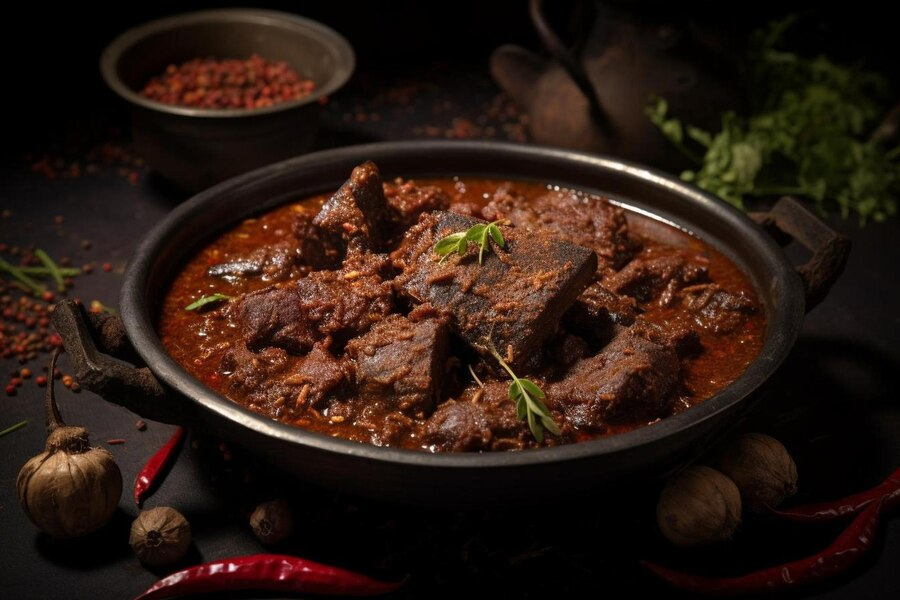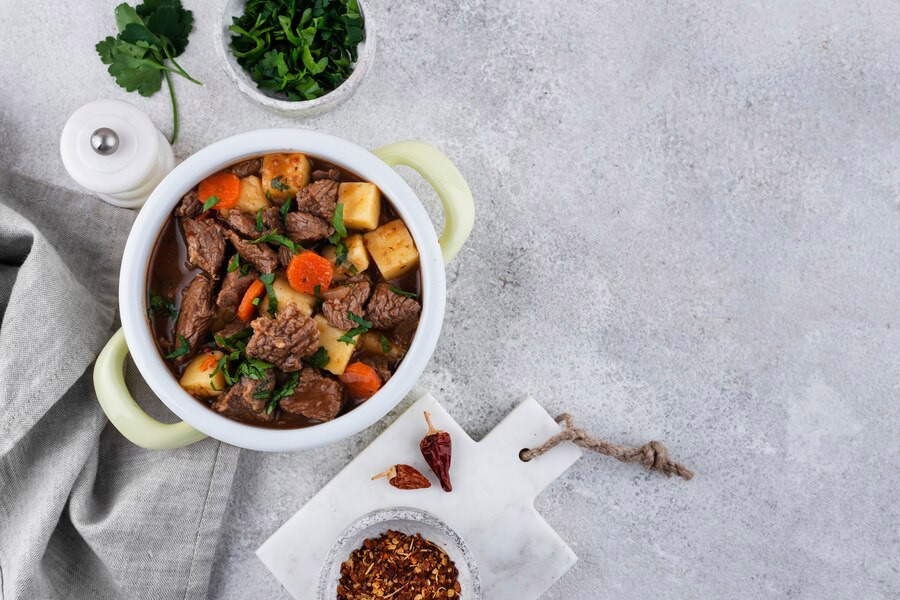
While there are many vegetarians in India, the majority of the country is said to be non-vegetarian. According to the National Family Health Survey 4, 70% of women and 78% of men in India consume meat. However, some surveys suggest that between 23% and 37% of the population is vegetarian, meaning that 63% to 77% are non-vegetarian.
Table of Content:-
Non-vegetarian foods include any food derived from animals, such as red meat (mutton, pork, beef), chicken, fish, and eggs. While these foods can be rich in essential nutrients like protein, iron, and B vitamins, it's important to note that regular consumption of red meat may influence health negatively.
Also Read: Study Finds The Link Between Consumption Of Red Meat And Chronic Diseases
Daily Red Meat Consumption May Impact Heart Health

In an interaction with the OnlyMyHealth team, Dr Preeti Nagar, Dietitian at Noida International Institute of Medical Sciences College and Hospital (NIIMS), says, "Consuming red meat daily may increase the risk of developing certain health conditions such as heart disease, stroke, diabetes, and certain types of cancer."
Talking about its impact on heart health, she adds, "Daily consumption of red meat, especially processed red meat like sausages and bacon, can raise cholesterol levels and increase the risk of cardiovascular diseases."
The doctor further shares that the saturated fat and cholesterol in red meat can contribute to the buildup of plaque in the arteries, leading to a higher risk of heart attacks and strokes.
A 2020 study published in the JAMA Internal Medicine followed over 29,000 adults for an average of 19 years and found that those who ate more processed meat, unprocessed red meat, or poultry were more likely to develop heart disease or die from any cause.
However, eating more fish was not linked to an increased risk.
Does It Increase Risk Of Cancer?

Regular consumption of red meat is said to increase the risk of different types of cancer.
One review published in the journal Cureus suggested that consuming red meat is linked to an increased risk of breast, gastric, and pancreatic cancer.
The presence of heme iron, which can trigger oxidative reactions leading to tumour formation, is believed to be a contributing factor.
Additionally, red meat consumption can increase the risk of Helicobacter pylori infection, a known risk factor for gastric cancer, the researchers noted.
Another study published in Cancer Discovery linked red meat consumption to a specific type of genetic mutation in colorectal cancer. Researchers analysed the DNA of 900 colorectal tumours and found a mutation pattern associated with exposure to alkylating agents, which are often found in red meat. This mutation pattern was more common in tumours from the lower part of the colon, predicted to target specific cancer-causing genes, and associated with poorer survival. Thus, indicating a link between red meat intake and colorectal cancer.
Also Read: Eating Red Meat Twice A Week Causes Type-2 Diabetes: Harvard Research
What Type Of Red Meat Are Health And Which Ones Are Unhealthy?
It is important to understand that a diet high in red meat for a prolonged period may also lead to weight gain, increased cholesterol levels, higher blood pressure, poor gut health, and increased inflammation in the body, contributing to various health issues.
However, it is also crucial to choose healthier types of red meat, ones that provide you with essential nutrients without risking your overall health.
Dr Nagar recommends lean cuts of red meat like sirloin or tenderloin, as they are healthier than fatty cuts like ribeye or T-bone steak.
Avoid processed red meats like bacon, hot dogs, and deli meats, which are more harmful due to added preservatives, sodium, and nitrates.
Healthier Alternatives To Try

If you are particularly concerned about nutrient deficiency but also care about your heart health, then you can go for healthier, plant-based alternatives. These include:
- Plant-based protein sources like beans, lentils, tofu, tempeh, and chickpeas
- Nuts and seeds
- Dairy products like yoghurt and cheese
Dr Nagar believes that incorporating a variety of protein sources and focussing on lean or plant-based options can reduce their intake of red meat and improve their overall health outcomes. She concludes by emphasising the need to consult with a healthcare provider or a nutritionist for personalised dietary recommendations based on individual health needs and preferences.
Also watch this video
How we keep this article up to date:
We work with experts and keep a close eye on the latest in health and wellness. Whenever there is a new research or helpful information, we update our articles with accurate and useful advice.
Current Version